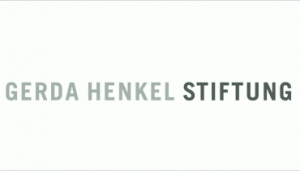Gerda Henkel Grants: Special Programme Forced Migration

Forced migration and the treatment of refugees and other displaced people are currently at the center of many political, social, and academic debates. Yet forced migration is neither limited to present-day developments nor to certain regions. It is, indeed, a global phenomenon that has shaped humankind since time immemorial. Violence, conflict, persecution, discrimination, poverty, as well as changes in climate and environment can prompt people to leave their places of origin. The approaches taken to study forced migration have, however, often been fragmented and replete with thematic gaps, methodological deficits, and limited broader geographic connections. Hence, there is a need to strengthen this core research.
In order to expand the horizons of the interdisciplinary field of Forced Migration Studies, the Gerda Henkel Foundation has initiated the special programme on “Forced migration.” The programme seeks to bring into conversation several disciplinary, methodological and epistemological perspectives on forced migration, and to build on the promising approaches and developments of global research while responding to the existing desiderata in related scholarship. It aims to support, in particular, internationally oriented, multidimensional research projects on forced migration that address questions receiving insufficient attention in the relevant debates thus far. This also involves further linking theoretical core research with concepts vital to social, humanitarian, and political praxis .
The Foundation welcomes research projects that adopt multidisciplinary approaches within this framework. It also particularly encourages the comparative engagement across regions and time periods. Projects that incorporate intersectional perspectives and issues are highly desirable too . Depending on the research approach taken and possibilities at hand, cooperation with local knowledge-producers, including people with lived experience of displacement in countries of origin or asylum, researchers and civil society actors (particularly in the “Global South”), is strongly encouraged.
The special programme is aimed at researchers across several disciplines such as Humanities, Social Sciences, Cultural Studies, Law, and Economics. Funding for research scholarships and for the implementation of research projects is offered. Ph scholarships are only granted in tandem with a specific research project. The Foundation expects applicants to reflect on the ethical implications of their work, and to develop plans to disseminate research results – including finding meaningful ways to address social, humanitarian, and/or political actors, as well as the nonspecialist public media and populace at large.
The Foundation's Board of Trustees decides on the applications on the basis of recommendation by an International Advisory Committee.
International Advisory Committee
Prof. Dr. Andreas Eckert | Berlin (Office rests until further notice.)
Prof. Dr. Tamirace Fakhoury | Medford
Prof. Dr. Maja Janmyr | Oslo
Prof. Dr. Ulrike Krause | Muenster
Prof. Dr. Naohiko Omata | Oxford
Prof. Dr. Marcia C. Schenck | Potsdam
Topic Focuses
The research projects should be linked to one or more of the following six core areas of research:
1) Forced-migration infrastructures
The first thematic area places focus on examining conditions (e.g. actors, institutions, structures) that can encourage, restrain, or otherwise influence forced migration in past and/or present. Possible topics include decision-making processes behind mobilities, roles of networks and technologies, structures of assistance and care for as well as by displaced people, and social dynamics emerging between them and host societies.
2) South-South (im)mobilities
The second thematic area places emphasis on research into motives, scopes, forms, and implications of mobilities and immobilities, or mobilizations and immobilizations, within and between southern states. Future studies could address, among other things, rejection, reception, and integration of displaced people; (im)mobilities during displacement, including forced immobility; and roles of networks in arrival locations; non-state integration structures in local communities, including motives and social, economic, cultural, or political impacts.
3) Multiple displacements
The third thematic area goes beyond simplified understandings of monocausal, linear displacements from one place of origin to one place of asylum, instead adopting a process-oriented perspective that considers temporary stays during flight, nonpermanent return migrations and recurring displacements. Possible studies could, for example, examine the motives, triggers, and processes of displacement, the impact of multiple displacements on social systems, issues of structural and physical insecurities, and recurrent adaptation and coping strategies.
4) Displaced people’s agency
The fourth thematic area concentrates on research into agency of people with lived experience of displacement. While they are sometimes portrayed in humanitarian and political discourses as passive victims or even as threats to state security, displaced people’s own perceptions and practices must receive adequate attention too. Possible studies could, for example, explore the relationship between vulnerabilities and agency of people with lived experience of displacement, their decision-making strategies, and their motives, aspirations, and resilience throughout displacement. Studies are also encouraged to explore the complex structure/agency dilemmas that shape displacement.
5) Gender and intersectionality
This fifth thematic area challenges the previous supposedly ‘gender-neutral’ research by aiming to critically engage with the complex and multifaceted experiences of forced migration through the lenses of gender identities, sexual orientations, race, ethnicity, age, class, and other intersecting factors. Projects may examine, for example, the gendered triggers and experiences of displacement, the roles of heteronormative political and social structures, the influences of intersecting factors on vulnerabilities and coping of displaced people, and the (lack of) incorporation of such factors in protection policies and praxis.
6) (Supra-)state influences on displacement processes
The sixth and final thematic area looks at the interconnections between displacement and statehood. Even though eroded statehood often precedes displacement, focusing it exclusively on state dysfunction is insufficient as forced migration is shaped by state policies, including repression, restrictive border regimes, or various transnational forms of cooperation and confrontation. Prospective projects could, for example, investigate the roles of nation-states and supranational organizations in causing, preventing, and shaping displacement, as well as indirect factors like economic ties, legal frameworks, and the spatial dimensions of mobility.
Application
Application documents
Applications for the special programme on “Forced migration” can only be submitted electronically. The required documents can be uploaded directly in conjunction with filling out the online application form.
Proposals will only be accepted in English.
The following documents are to be submitted:
- Description of the research project (including assignment to at least one of the six core research areas)
- 8 pages, easily readable font, e.g. Arial 11 point or Times New Roman 12 point. with line spacing 1.5
- Supplementary document outlining the ethical issues linked to the research, the output foreseen, and the social, humanitarian, and/or political impact of the applicant’s own scholarship
- Work plan and time schedule, plus travel itinerary (if appropriate)
- Detailed estimate of costs
- precise figures must be given for the individual amounts requested
- no college or tuition fees
- no overhead costs
- Curriculum vitae and list of publications of the applicant(s)
- If relevant, curriculum vitae and list of publications of the proposed project staff
- If relevant, academic degrees of the project staff (Masters, PhD, professorship, etc.; please do not send Bachelor certificates)
If the applicant(s) is/are also seeking a research scholarship:
- Academic degrees of the applicant(s) (Masters, PhD, professorship, etc.; please do not send Bachelor certificates)
Please do not additionally send the documents by email or post.
Applications which the Foundation has turned down cannot be resubmitted, even for a different funding initiative or in a revised version.
Please note that, due to the high number of applications handled by a small team in the Foundation’s head office and the confidentiality guaranteed to our reviewers, the Foundation is unable to provide a detailed explanation for the rejection of an application.
Payment
The approved scholarships are usually paid directly to the scholarship holders on a monthly basis. Alternatively, the scholarships may be administered via a third-party account at your institution.
Applicable to new permits from 1 January 2024.
PhD Scholarships
Monthly scholarship award: 1.920 euros
- for one child: EUR 480
- each further child: EUR 120
The family grant is awarded for children who have not yet turned 18.
Monthly endowment for scholarships abroad: 480,- euros
Travel aid: as required
Material aid: as required
Research Scholarships for Postdocs
Monthly scholarship award: 2,760 euros
- for one child: EUR 480
- each further child: EUR 120
The family grant is awarded for children who have not yet turned 18.
Monthly endowment for scholarships abroad: 690 euros
Travel aid: as required
Material aid: as required
Research Scholarships after Post Doctoral Lecture Qualification
Monthly scholarship award: 3,720 euros
For classification under the stipend rate “after post doctoral lecture qualification”, the following applies: In higher education systems in which a formal second academic qualification beyond the doctorate (e.g. habilitation or an equivalent procedure) is required, this second qualification will be treated as as the determining qualification. In higher education systems in which a second qualification of this kind is not part of the academic structure, the Foundation will as a rule regard the holding of a permanent (normally tenured) professorship or other permanent higher education teaching position at a mid-level or senior rank (e.g. Associate/Full/Distinguished Professor, Senior Lecturer, Reader, Professor) as an equivalent qualification to the habilitation; comparable positions may be recognised as equivalent in individual cases, in line with the respective national ranking system. A positively evaluated junior professorship is likewise recognised as equivalent. Positions such as Assistant Professor or Lecturer, as well as fixed-term junior professorships without a positive evaluation, are not regarded as equivalent to the habilitation.
- for one child: EUR 480
- each further child: EUR 120
The family grant is awarded for children who have not yet turned 18.
Monthly endowment for scholarships abroad: 930 euros
Travel aid: as required
Material aid: as required
Deadlines
A call for proposals is announced once a year. The next application deadline is April 29, 2026.
